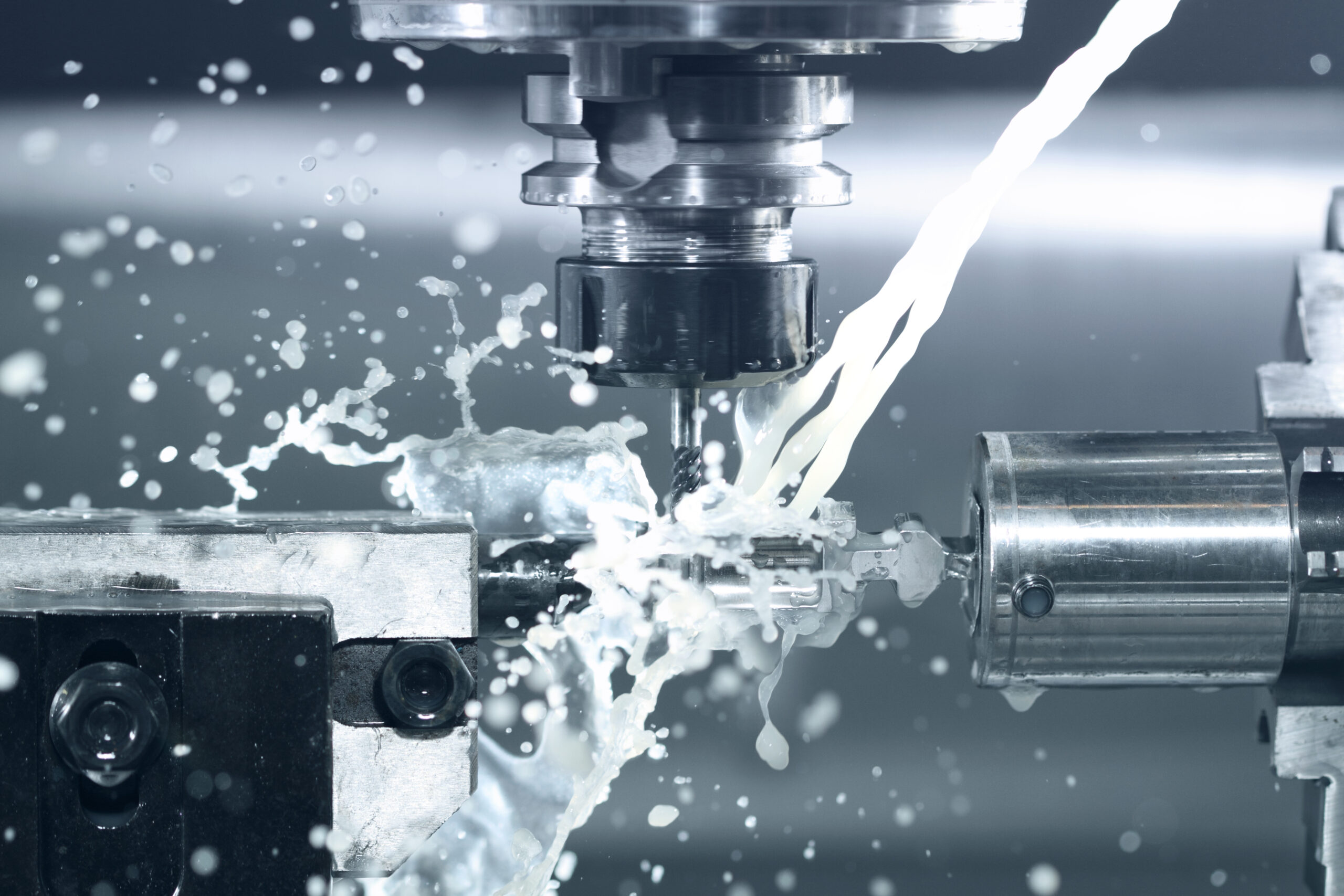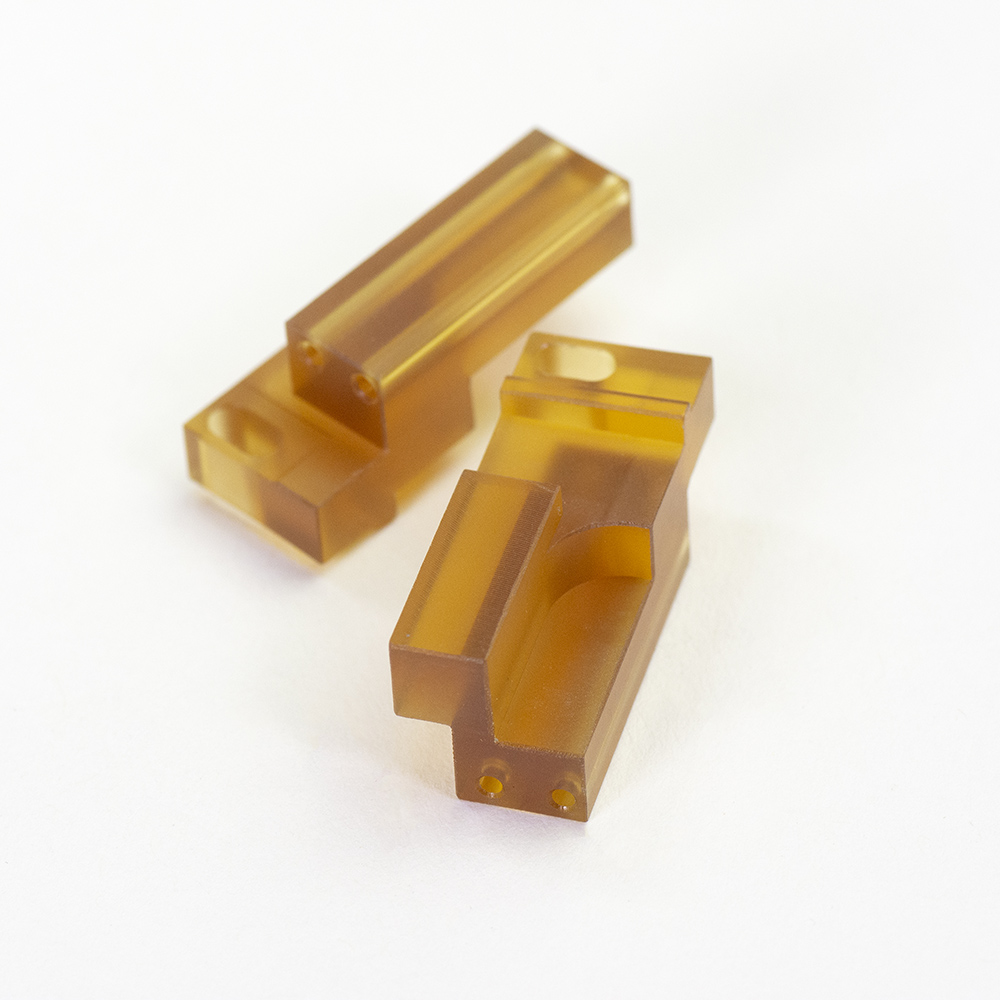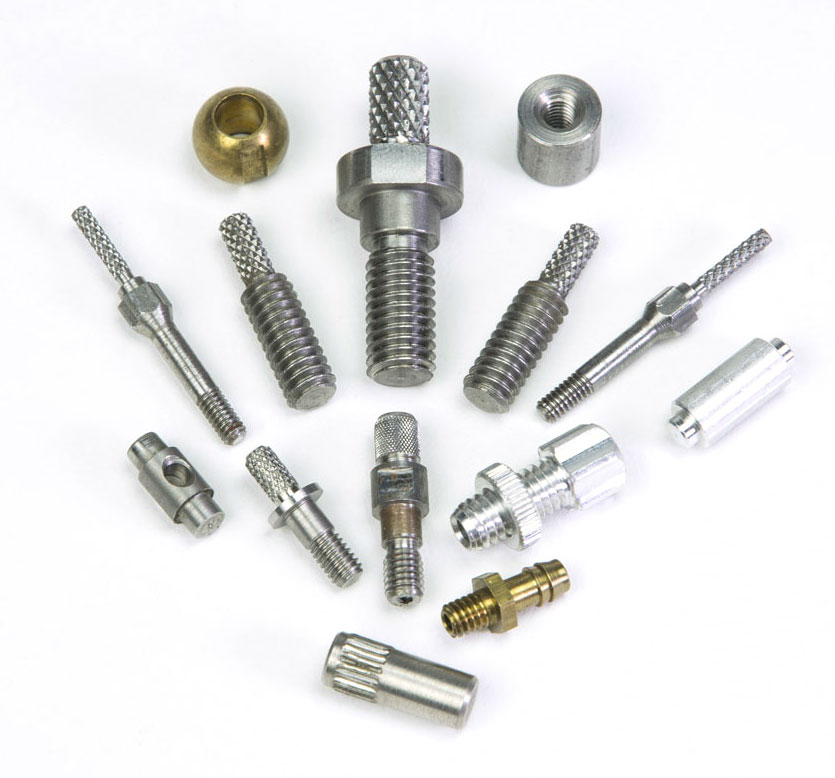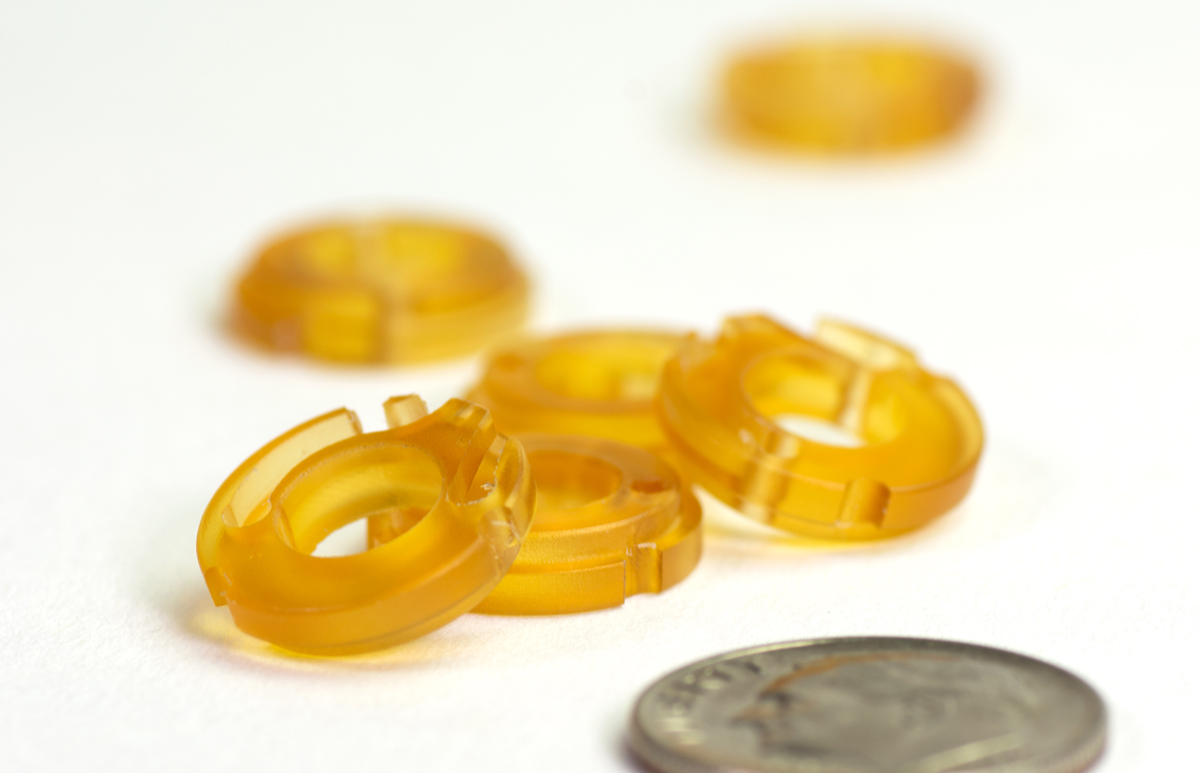
CNC machining has become one of the most reliable and versatile manufacturing processes across countless industries. From aerospace and defense to medical devices and optical products, CNC machining delivers the precision, repeatability and efficiency that today’s complex parts demand. While the process itself remains consistent — using computer-controlled tools to shape raw materials — the choice of material plays a critical role in determining both performance and production outcomes.
Table of Contents
Two of the most common categories of materials used in CNC machining are plastics and metals. Both offer unique advantages and limitations, and choosing between them depends on factors such as strength requirements, environmental conditions, budget and intended application. In this blog, we’ll explore how plastic CNC machining compares to metal CNC machining, helping you understand which option might be right for your project.
Understanding CNC Machining Basics
CNC machining, short for Computer Numerical Control machining, involves using pre-programmed computer software to control the movement of tools and machinery. Unlike manual machining, CNC machining can achieve incredibly tight tolerances, complex geometries and repeatable results in both plastics and metals.
The process works with a wide variety of materials, but the two broad categories — plastics and metals — require different approaches due to their distinct properties. By looking at these differences, manufacturers can make informed decisions about which material category best suits their project.

Plastic CNC Machining
Key Characteristics of Plastics in CNC Machining
Plastic CNC machining is commonly used for applications where lightweight, corrosion resistance or electrical insulation are key requirements.
Popular plastics for machining include Delrin®, Noryl®, PEEK, PVC, UHMW and Teflon®.
Plastics generally have:
- Lower density than metals, making parts significantly lighter.
- Excellent chemical resistance, especially against corrosion and moisture.
- Good machinability, since plastics are softer and easier to cut than metals.
- Electrical insulation properties, making them ideal for electronic or medical applications.
Advantages of Plastic CNC Machining
1) Lightweight Design
Plastic components are much lighter than their metal counterparts. This advantage is critical in industries like aerospace and medical devices, where weight reduction can lead to improved efficiency or patient comfort.
2) Corrosion Resistance
Unlike many metals, plastics are naturally resistant to rust, corrosion and chemical degradation. This makes them suitable for environments with exposure to moisture or chemicals.
3) Cost Efficiency
Plastic materials and machining processes can be more cost-effective compared to certain metals, particularly when producing prototypes or short production runs.
4) Flexibility
Plastics can be machined into complex geometries more easily than some metals, and they often allow for greater design freedom.
5) Specialized Properties
Certain plastics, like PEEK, offer high strength-to-weight ratios and can withstand elevated temperatures, making them an alternative to metals in demanding applications.
Limitations of Plastic CNC Machining
- Lower Strength and Durability: Plastics generally cannot match the tensile strength or load-bearing capacity of metals.
- Thermal Limitations: High temperatures can cause plastics to deform or lose structural integrity.
- Dimensional Stability: Some plastics expand or contract with changes in temperature or humidity, which can affect tolerances.
Metal CNC Machining
Key Characteristics of Metals in CNC Machining
Metals remain the backbone of CNC machining due to their strength, durability and versatility.
Common metals used include aluminum, titanium, copper, bronze, brass, stainless steel and tungsten.

Metals typically offer:
- High strength and durability, making them ideal for load-bearing applications.
- Thermal conductivity, which is beneficial in applications requiring heat resistance or dissipation.
- Wear resistance, especially in harsh environments.
- Versatility, with a wide range of alloys available to meet specific needs.
Advantages of Metal CNC Machining
1) Superior Strength and Load Capacity
Metals can withstand heavy loads, impacts and extreme environmental conditions. They are the go-to choice for industries like aerospace, defense and automotive.
2) Tight Tolerances
Metal machining allows manufacturers to achieve exceptionally tight tolerances, which is critical for applications such as engine parts or medical implants.
3) High Temperature Resistance
Metals like titanium and stainless steel maintain their properties under high heat, making them suitable for aerospace engines, surgical instruments and defense systems.
4) Durability and Longevity
Parts made from metals often last longer and perform better under demanding conditions compared to plastics.
5) Material Variety
With countless alloys available, metals can be customized for specific characteristics such as corrosion resistance, hardness or machinability.
Limitations of Metal CNC Machining
- Heavier Weight: Metal parts often add more weight, which can be a disadvantage in industries like aerospace.
- Higher Cost: Certain metals are more expensive, and machining them can be more time-intensive.
- Corrosion Risks: While many metals are corrosion-resistant, others may require coatings or treatments to prevent degradation.
Comparing Plastic Machining vs. Metal Machining

1) Strength and Durability
- Plastics: Lightweight but less durable; suitable for non-load-bearing or specialized applications.
- Metals: Stronger and more durable; ideal for structural or high-stress components.
2) Weight
- Plastics: Much lighter, contributing to efficiency in aerospace and medical fields.
- Metals: Heavier but necessary for strength-critical parts.
3) Cost Efficiency
- Plastics: More affordable for prototyping and small runs.
- Metals: More cost-effective for high-volume production, especially when strength is required.
4) Corrosion and Environmental Resistance
- Plastics: Naturally corrosion-resistant.
- Metals: Require treatments for corrosion resistance, though stainless steel and titanium excel in this area.
5) Precision and Tolerances
- Plastics: Can achieve precision, but dimensional stability may vary with environmental changes.
- Metals: More consistent and stable for ultra-precise tolerances.
6) Industry Applications
- Plastics: Widely used in medical devices and electronics.
- Metals: Essential in aerospace, defense, automotive and heavy machinery.
Industry Applications of Plastic and Metal CNC Machining
Medical Industry
- Plastics: Biocompatible components such as surgical tool housings, implants and diagnostic equipment.
- Metals: Titanium implants, stainless steel surgical tools and durable brackets.
Aerospace Industry
- Plastics: Lightweight parts for interiors and insulation.
- Metals: Aluminum, titanium and alloys for engines, structural components and critical systems.
Defense Industry
- Plastics: Lightweight components for electronics and housings.
- Metals: High-strength parts for weapons systems, armored vehicles and aerospace defense applications.
Optical Industry
- Plastics: Precision housings and lightweight brackets.
- Metals: Durable frames, mounts and components requiring ultra-tight tolerances.
When to Choose Plastic CNC Machining
Plastic CNC machining is the right choice when:
- You need lightweight, corrosion-resistant components.
- Prototyping requires cost-efficient material.
- The application requires electrical insulation.
- Moderate strength and precision are sufficient.

When to Choose Metal CNC Machining
Metal CNC machining is the best option when:
- High strength or load-bearing capacity is required.
- The application involves high temperatures or extreme conditions.
- Tight tolerances and dimensional stability are essential.
- The part will experience wear, stress or impact.

Striking the Right Balance
In many cases, the choice between plastic and metal CNC machining isn’t strictly one or the other. Some projects may begin with plastic prototypes before transitioning to metal for final production. Others may use a combination of plastic and metal components to balance cost, performance and weight.
By working with an experienced CNC machining partner, you gain valuable insights into which materials best fit your application. An expert shop can also recommend treatments, finishes or alternative materials to maximize the performance and lifespan of your parts.
Choosing the Right CNC Machining Partner
At P4Swiss/Lindel CNC Machining, we specialize in machining both plastics and metals with unmatched precision. Our team has decades of experience working with a wide range of materials including aluminum, stainless steel, titanium, copper, brass, bronze and advanced plastics like Delrin®, PEEK and Teflon®.
We understand that every project is unique, and we work closely with customers to identify the right material and machining process to meet performance, budget and timeline requirements. Whether you need lightweight plastic prototypes, high-strength metal production runs or a combination of both, our capabilities ensure you receive parts that exceed expectations.
Making the Right Choice
Plastic and metal CNC machining each play critical roles in modern manufacturing. Plastics offer lightweight design, corrosion resistance and cost efficiency, while metals provide unmatched strength, durability and precision. By carefully weighing the advantages and limitations of each, you can select the best material for your project.
When precision, performance and reliability matter most, partnering with experts like P4Swiss/Lindel CNC Machining ensures your project is in capable hands. Contact us today to discuss your next CNC machining project and explore the right material solution for your needs.
If you have any questions or would like to submit a CNC request for quote (RFQ), please do not hesitate to contact Tony Torrez at tony@p4swisslindel.com, call us at (520) 792-3160 or click the “Request a Custom CNC Quote Today” button below.